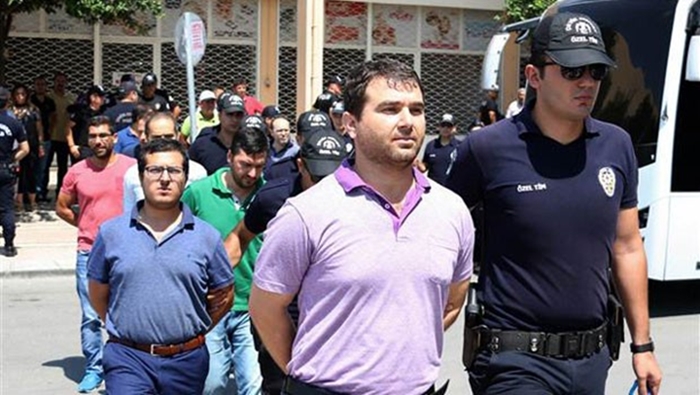The Turkish Ministry of Justice has instructed high criminal court prosecutors to ban lawyers under investigation from defending suspects and convicts accused of terror offenses and plotting a coup attempt last summer, the Cumhuriyet daily reported on Wednesday.
According to the ministry instructions, lawyers who are being investigated and prosecuted for the same charges can be prohibited from doing their jobs for up to two years, the report said.
The ministry referred to the related articles of Code on Criminal Procedure (CMY) and said it is of great importance for the relevant authorities to take measures against the communication and exchange of instructions within organizations via defendants and to prevent the obfuscation of evidence.
In addition to terror and coup charges, offenses against the security of the state and the constitutional order are also mentioned in the ministry instructions, which said lawyers being investigated and prosecuted for these charges can be initially prohibited from defending their clients for one year. This period can twice be extended by six months and lawyers will not be allowed to visit their clients while they are banned from presenting a defense, the instructions said.
According to a report on the Turkey Purge website in April, at least 400 lawyers have been jailed while 997 others have been investigated either over alleged involvement in the coup attempt or having links to the Gülen movement, which the Turkish government accuses of mounting a botched coup on July 15, 2016, a claim the movement strongly denies.
National and international human rights advocates and organizations criticize the government-led crackdown on the lawyers as constituting a huge blow against justice.
The Turkish government has arrested a total of 2,431 judges and prosecutors since the coup attempt on July 15, 2016 and dismissed 4,424 others from their jobs, a Constitutional Court general assembly ruling revealed on July 26.
In December, the European Networks of Councils for the Judiciary (ENCJ) suspended the observer status of Turkey’s Supreme Board of Judges and Prosecutors (HSYK) and excluded it from participation in ENCJ activities for the mass suspension and dismissal of judges and prosecutors and the failure to comply with the European Standards for Councils for the Judiciary.
On June 8, Nils Muižnieks, the Council of Europe’s commissioner for human rights, expressed concern about the new composition of HSYK based on amendments which was approved in April 16 referendum, saying it does not offer adequate safeguards for the independence of the judiciary.
